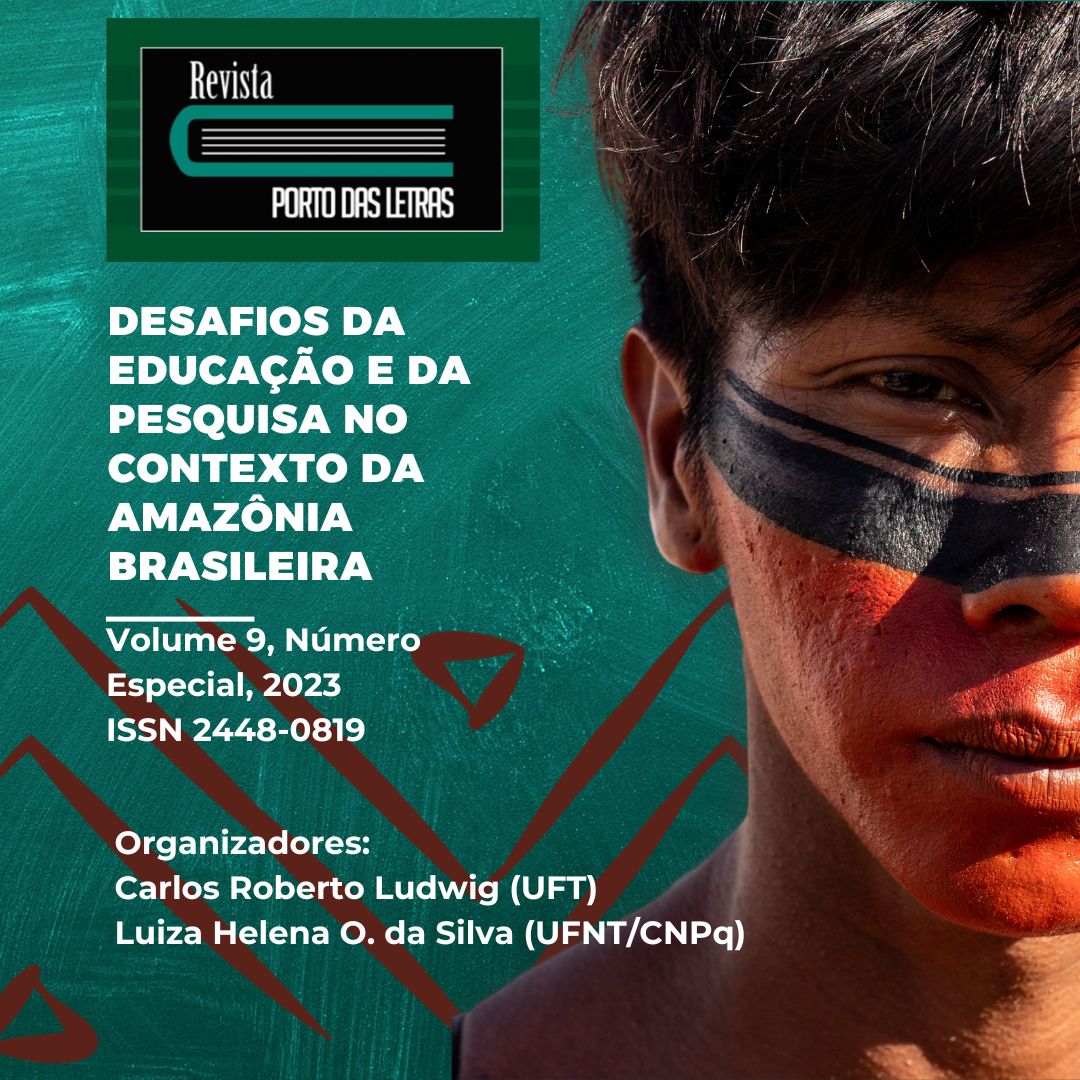STICKERS UTILIZADOS COMO RECURSO PEDAGÓGICO NO ENSINO REMOTO: PROCESSOS DE PRODUÇÃO E EFEITOS DE SENTIDO
Resumo
Com base nos conceitos teóricos relacionados à teoria da Análise de Discurso de linha francesa, de orientação pecheuxtiana, neste artigo refletimos sobre os processos de produção dos sentidos de stickers utilizados, por docentes da educação básica, como recurso pedagógico no ensino remoto, durante o período pandêmico, com o objetivo de compreender o funcionamento discursivo dessa materialidade significante. Nossa pesquisa, mesmo abordando discursividades globalizadas, está inserida no contexto amazônico. À vista disso, apresentamos as contribuições da Análise de Discurso para a leitura de nosso trabalho que é constituído de um corpus de 3 figurinhas que circularam via whatsapp no âmbito pedagógico. Apesar de já haver o uso de figurinhas nas relações estabelecidas por smartphones e computadores entre usuários de plataformas digitais, o uso como recurso pedagógico, via whatsapp na educação básica, estabeleceu-se, para muitos docentes da educação básica pública, especificamente nas aulas remotas durante o isolamento decorrente da pandemia do Covid-19. Desse modo, partimos de uma análise dos processos de constituição, de formulação e de circulação dos stickers, à luz dos seguintes dispositivos analíticos: condições de produção, posição-sujeito, formação discursiva e interdiscurso.
Referências
COURTINE, J. J. Análise do discurso político: o discurso comunista endereçado aos cristãos. 1ª ed. São Carlos: EdUFSCar, 2014.
DIAS, Cristiane. Análise do Discurso Digital: sujeito, espaço, memória e arquivo. Campinas, SP: Pontes Editores, 2018.
ORLANDI, E. P. Análise de Discurso: princípios e procedimentos. 12ª ed. São Paulo: Pontes Editores, 2015.
ORLANDI, E. P. Discurso e Leitura. 9ª ed. São Paulo: Cortez, 2012.
PÊCHEUX, M. Semântica e discurso – uma crítica à afirmação do óbvio. Trad. Eni Orlando et al. 5ed. Campinas-SP: Editor da Unicamp, 2014.
PÊCHEUX M.; FUCHS, C. (2014). “A propósito da Análise Automática do Discurso: atualização e perspectivas (1975)”. In: GADET, F.; HAK, T.(org). Por uma análise automática do discurso. 3. ed. Campinas: Editora da Unicamp p.159-249. 2014.
Downloads
Publicado
Como Citar
Edição
Seção
Licença
Os autores concordam com os termos da Declaração de Direito Autoral, que se aplicará a esta submissão caso seja publicada nesta revista (comentários ao editor podem ser incluídos a seguir).

